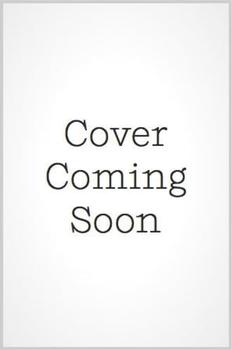Summary | Excerpt | Reviews | Beyond the Book | Readalikes | Genres & Themes | Author Bio

A Novel
by Caoilinn Hughes
I went to Edinburgh during the summer—For the festival? Geraldine clenches with envy.
Yeah, says Fionnuala, but we took a day trip to Siccar Point. She glances at Olwen.
You did not! Olwen replaces a chunk of granite she'd been using as a stress ball back in the specimen tray, readying herself to shake Fionnuala's hand.
Fionnuala smiles. It was a little tricky ... to get out onto the rock.
But it was worth it.
Olwen looks around the group. Does anyone know what historic expedition Fionnuala was honoring, trekking out to Siccar Point on Scotland's weather‑battered coast, when she could've stayed in Edin‑ burgh town to watch Shit‑faced Shakespeare?
Everyone laughs a bit, releasing some pressure.
Do you want to say, Fionnuala, what you saw there? And who saw it first!
Fionnuala pulls at a mini harmonica pendant, traveling it back and forth along the necklace chain. By the end of year one, Olwen will count herself a failure if she hasn't replaced that pendant with a hand lens.
Fionnuala acts a touch more flustered than she is: Em ... so, James Hutton, I guess back in the seventeen hundreds? Found these rock formations. These really crazy layered rocks, kind of like pastry ... or maybe I just associate Scotland with pastry!
Sedimentary rock, like the strata of colored sands—Olwen gestures—in our squeeze‑box experiment.
Exactly, yeah. There were horizonal layers like that, and vertical sections too ... side by side, or on top of one another, at right angles. And the vertical rocks and the horizontal formed in totally different ways, in different time periods. And Hutton basically looked at them and instantly understood plate tectonics. Or a theory that led to it? Or ... was it just that he knew that the center of the earth was molten rock, and that that was how new land was made? Instead of, you know, God making it. Fionnuala keeps glancing to Olwen for confirmation. Because before that, she presses on, he could see erosion happening and couldn't understand how all land hadn't been just ... washed away by the weather. Like, how was there anything left? And the only explanation anyone knew for new land was God. But when Hutton saw those rocks, he knew they were evidence that the earth was billions of years old, instead of thousands. Because the formations would've taken ... yeah, a really, really long time!
At Fionnuala's unsure expression, Olwen nods with the restrained
pride of a surgeon confirming that they got it all, that the patient has plenty of life ahead. She points to a laminated poster on the wall la‑ beled Geologic Time Scale, which breaks the history of the planet into units of time, from lengthiest to briefest. The unit of time you're talk‑ ing about, she says, for a really, really long time, is an eon.
Geraldine, with a cynicism out of sync with the affirmative badges on her backpack, says: What's the bet Hutton didn't publish his the‑ ories 'cause he was afraid of the pope?
He did one better than publish his theory, Olwen says levelly. He published findings. First, he went cantering up the highlands to find irrefutable evidence to bear the theory out. Physiological manifestations. Brute facts. He found his proof at the meeting point of two rivers, where pink granite—igneous rock, intrusive rock, spewed up as magma and cooled slowly—was mingled like cream in a soup of gray sandstone, sedimentary rock, accumulated over time on an ancient seabed. Thusly—as last year's undergraduates loved to say—Hutton was able to throw the Judeo‑Christian chronology of the earth out the lab window.
With a leery expression and a briny smell, Geraldine wafts the damp hooded towel she wears as a cape to help it dry from her morn‑ ing sea swim. I'm pretty sure non‑Western cultures knew the earth was billions of years old before some ... equestrian Scot in a ruff.
Excerpted from The Alternatives by Caoilinn Hughes. Copyright © 2024 by Caoilinn Hughes. Excerpted by permission of Riverhead Books. All rights reserved. No part of this excerpt may be reproduced or reprinted without permission in writing from the publisher.
Education is the period during which you are being instructed by somebody you do not know, about something you do ...
Click Here to find out who said this, as well as discovering other famous literary quotes!
Your guide toexceptional books
BookBrowse seeks out and recommends the best in contemporary fiction and nonfiction—books that not only engage and entertain but also deepen our understanding of ourselves and the world around us.